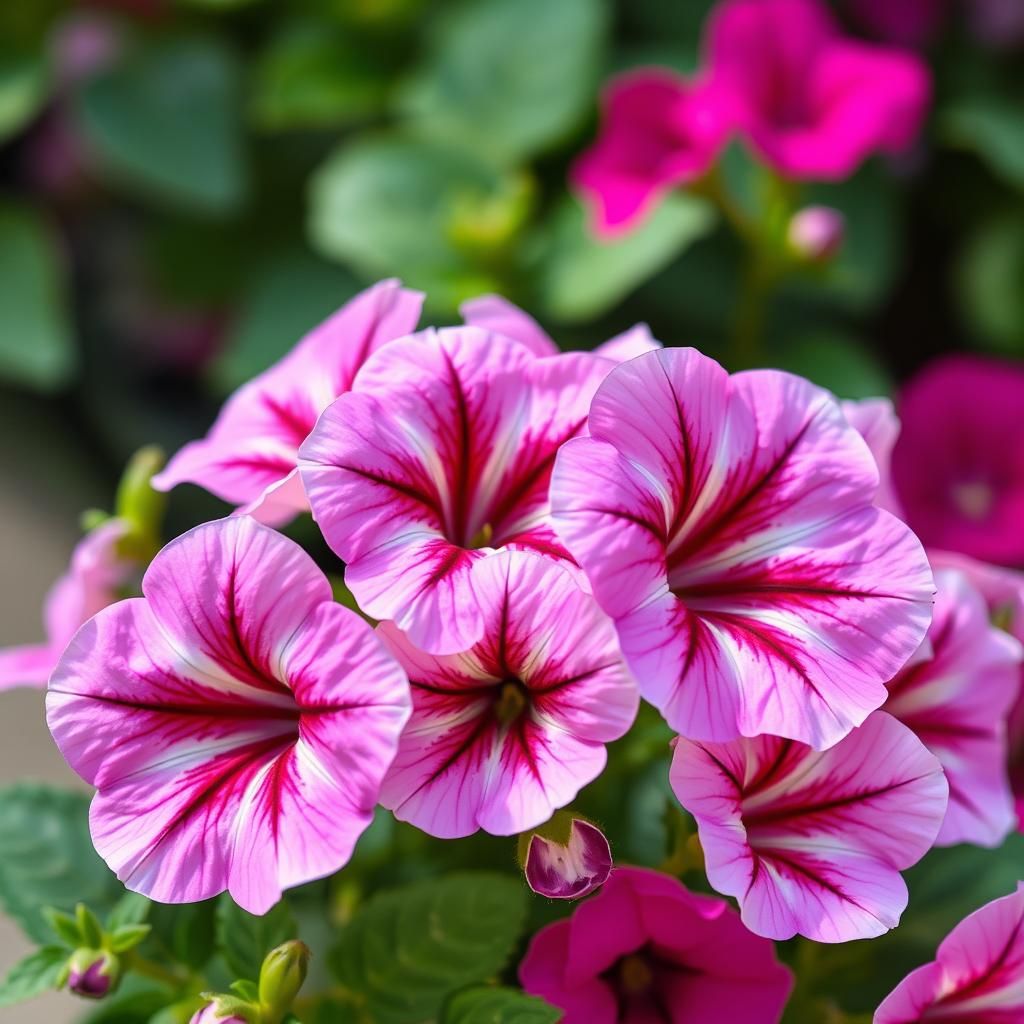How Do You Take Care of Petunias? Essential Tips for Thriving Blooms

Petunias are vibrant, resilient flowers that can bring life to any garden or patio. With their wide variety of colors and forms, they can be a delightful addition for both novice and seasoned gardeners alike. However, to ensure these blooms thrive throughout the growing season, proper care and maintenance are essential. Understanding their specific needs, from sunlight and watering to fertilization and pest control, can make a significant difference in the health and beauty of your petunias. In this article, we will explore essential tips and best practices for nurturing these stunning flowers, ensuring a flourishing display of blooms.
How to Properly Care for Petunias
To effectively care for petunias, it is essential to provide them with adequate sunlight, well-draining soil, and regular watering. Petunias thrive in full sun, requiring at least 6 hours of sunlight daily. When planting, choose a soil that is rich and nutrient-dense, as this will promote healthy growth. Water these plants consistently, ensuring the soil stays moist but not soggy, as petunias are susceptible to root rot. Fertilizing every 4-6 weeks with a balanced fertilizer will help them produce vibrant blooms. Additionally, regular deadheading will encourage more flowers and help maintain a tidy appearance.
Sunlight Requirements
Petunias flourish when exposed to full sunlight, ideally for at least 6-8 hours per day. If they receive insufficient light, they might become leggy and produce fewer flowers. Positioning your petunias in a location that gets direct sun will enhance their vigor and blooming potential, leading to a more vibrant garden display.
Soil Quality
The soil you use for planting petunias should be well-draining and rich in organic matter. A potting mix that contains compost or peat moss can provide the necessary nutrients and improve drainage. Poor soil conditions can lead to stunted growth and health issues; thus, ensuring the right soil type is crucial for thriving petunias.
Watering Schedule
To keep petunias healthy, they need consistent but moderate watering. It's best to water them when the top inch of soil feels dry to the touch. Over-watering can lead to root rot, while under-watering can cause wilting. Maintaining a balanced watering schedule will ensure your petunias continue to flourish throughout the growing season.
See also:
Fertilization Tips
Regular fertilization is key to maximizing the blooming potential of petunias. Use a balanced, water-soluble fertilizer every 4 to 6 weeks during the growing season. This will provide the essential nutrients they need for robust growth and abundant flowering. Be cautious not to over-fertilize, as this can harm the plants.
Deadheading Practices
To promote continuous blooming and maintain their aesthetic appeal, regular deadheading of petunias is advisable. Removing spent blooms encourages the plant to direct its energy towards producing new flowers rather than seed production. This practice also helps keep the plant looking tidy and healthy, which is especially important in landscaped areas.
| Care Aspect | Recommendation |
|---|---|
| Sunlight | 6-8 hours of direct sunlight |
| Soil | Well-draining, nutrient-rich soil |
| Watering | Water when the top inch is dry |
| Fertilization | Every 4-6 weeks with balanced fertilizer |
| Deadheading | Regularly remove spent flowers |
Understanding Petunia Care Requirements
To ensure healthier and more vibrant blooms, it is crucial to understand the specific care requirements of petunias. These plants thrive in full sun, requiring at least six hours of direct sunlight each day. Soil should be well-draining to prevent root rot, and regular deadheading is necessary to encourage prolongation of blooming. An appropriate fertilization routine, typically with a balanced fertilizer, can also enhance growth and longevity, achieving the best results in thriving petunia gardens.
Choosing the Right Soil for Petunias
To cultivate flourishing petunias, selecting the proper soil mix is imperative. Petunias prefer a light, well-aerated potting mix with excellent drainage to prevent water retention that can lead to root diseases. A mixture containing perlite or vermiculite can enhance aeration, while incorporating organic matter, like compost, can provide essential nutrients for vibrant blooms.
Watering Techniques for Optimal Growth
Effective watering practices are vital for the health of petunias. These plants require consistent moisture without becoming soggy, which can damage roots. It is best to water deeply and infrequently, allowing the top inch of soil to dry out between waterings. Utilizing drainage holes in pots ensures excess water can escape, further preventing damp conditions that affect growth negatively.
See also:
Pest and Disease Management
Pesticide management is an essential aspect of petunia care to keep these plants healthy. Common pests like aphids and spider mites can attack petunias, while diseases such as powdery mildew can hinder growth. Regularly inspecting plants for signs of pests or infections aids in early detection. Using organic insecticidal soaps or neem oil can help control pest populations while maintaining the plant's environmental integrity.
Best Fertilizers for Petunias
Nourishing petunias through an appropriate fertilization regimen promotes vibrant blooms. A balanced liquid fertilizer applied bi-weekly during the growing season can enhance blooming capacity. Look for fertilizers high in phosphorus, which is essential for flower production, and follow package directions for application amounts to avoid nutrient burn.
Seasonal Care Adjustments
As the seasons change, petunias require specific care adjustments to continue thriving. In spring, it's important to harden off any indoor-grown plants before transplanting them outside. During the summer, increased watering and regular deadheading are needed to sustain bloom quality. When fall arrives, consider transitioning petunias inside as a temporary solution in colder regions, ensuring they receive adequate light to continue flourishing indoors.
Questions from Our Readers
How often should I water my petunias?
Petunias typically require watering once a week, but this can vary based on climate and soil conditions. Watering should be done deeply, allowing the soil to dry out slightly between waterings to prevent root rot.
Do petunias need full sun?
Yes, petunias thrive best in full sun, which means they should receive at least 6 hours of direct sunlight each day. This promotes healthy growth and vibrant flowering.
See also:
What type of fertilizer is best for petunias?
A balanced liquid fertilizer is ideal for petunias, particularly one with an N-P-K ratio of 15-15-15. Fertilizing every few weeks during the growing season will help maintain strong growth and colorful blooms.
How do I deadhead petunias?
To deadhead petunias, simply pinch or cut off the spent blooms with your fingers or scissors. This encourages the plant to produce more flowers and keeps it looking tidy.

If you want to read more articles like How Do You Take Care of Petunias? Essential Tips for Thriving Blooms, we recommend you check out our Flowers category.
Leave a Reply
Related Articles